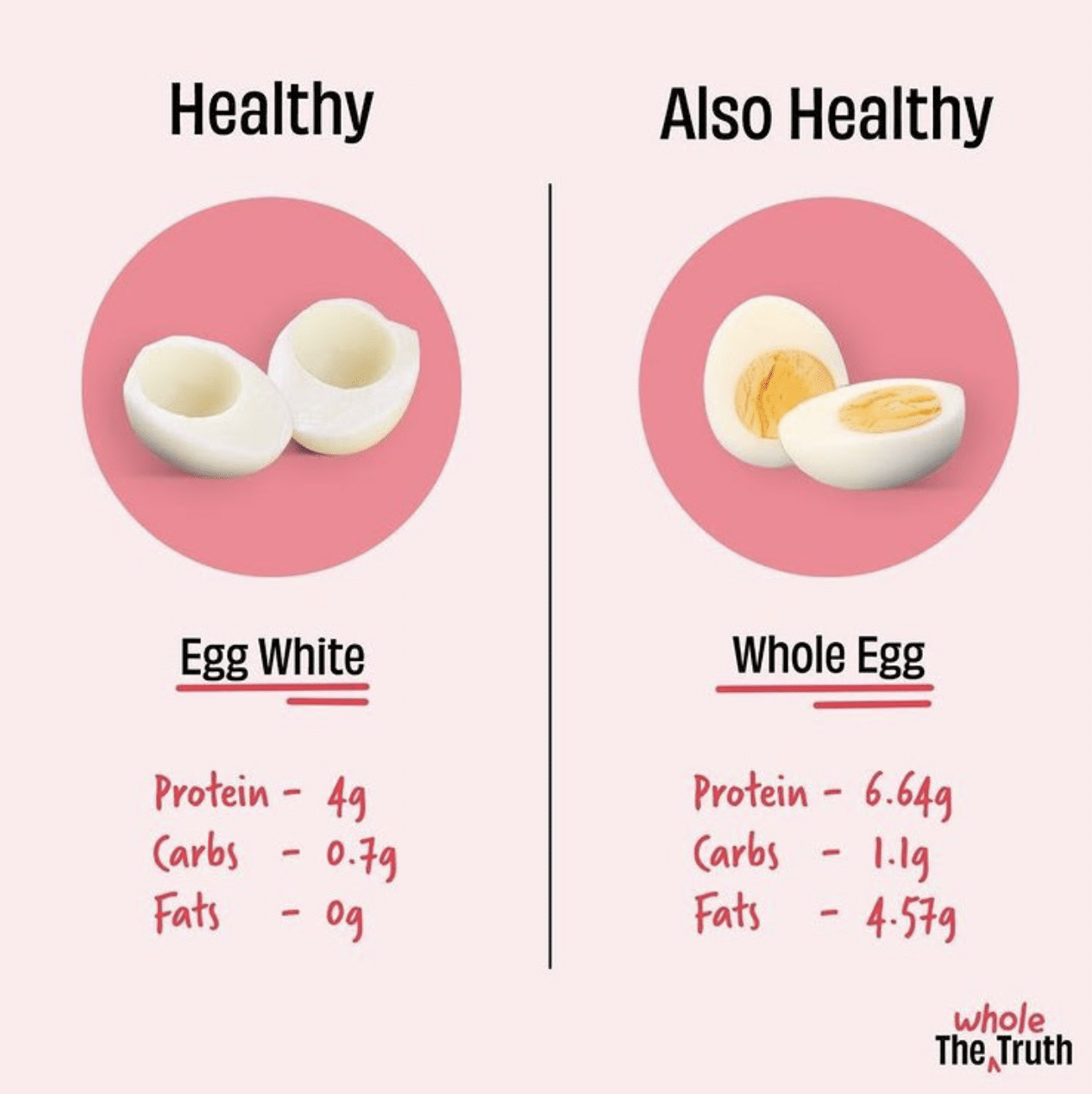How Much Protein In Eggs? A Must-Know Guide For Your Healthy Diet
Let's talk about eggs, folks! If you're here, you're probably wondering how much protein is in eggs. Eggs have been a staple in kitchens around the world for centuries, and for good reason—they’re packed with nutrients, affordable, and super versatile. But when it comes to protein, eggs are a powerhouse. Whether you're trying to build muscle, lose weight, or just maintain a balanced diet, understanding the protein content in eggs is key. So, let's dive in!
Nowadays, people are more health-conscious than ever. From gym enthusiasts to busy parents looking for quick yet nutritious meals, eggs are a go-to option. But how exactly do they stack up in terms of protein? That's what we're going to break down for you today. Whether you're eating them scrambled, boiled, or fried, the protein content in eggs remains a vital part of your daily nutrition plan.
Before we get into the nitty-gritty, let’s address the elephant in the room: why does protein matter so much? Protein isn’t just for bodybuilders—it's essential for repairing tissues, building muscles, and keeping you full longer. And eggs? They’re like nature’s multivitamin, delivering high-quality protein along with other vital nutrients. Stick around as we unpack everything you need to know about the protein content in eggs.
- Wochenende Gerettet Lustige Sprche Fr Dich Tipps
- Jellycat In Berlin Finden Die Besten Shops Onlinealternativen
Understanding Protein in Eggs
What Makes Eggs a Protein Powerhouse?
Eggs are often referred to as "nature's perfect food" for a reason. When it comes to protein, eggs deliver the goods. On average, a single large egg contains about **6 grams of protein**, making it an excellent source of this macronutrient. But here's the kicker—protein quality matters just as much as quantity. Eggs contain all nine essential amino acids, which your body can’t produce on its own. That makes them a complete protein source, something not all foods can claim.
Now, if you're wondering where the protein is concentrated, here's the scoop: both the yolk and the whites contribute to the total protein content. The egg white, or albumen, contains about **3.6 grams of protein**, while the yolk chips in around **2.7 grams**. So, if you've been skipping the yolk for fear of fat or cholesterol, you're missing out on some valuable protein and nutrients!
How Much Protein Is in Different Types of Eggs?
Not All Eggs Are Created Equal
When you head to the grocery store, you'll notice a variety of egg options—large, medium, jumbo, organic, omega-3 enriched, and more. Each type has its own protein content, so let's break it down:
- Keinemusik Time Warp Alle Infos Und Events In Mannheim
- Selbstbefriedigung So Gehts Richtig Tipps Tricks
- Large Egg: The most common size, with about 6 grams of protein.
- Medium Egg: Slightly smaller, packing around 5 grams of protein.
- Jumbo Egg: The biggest egg on the block, offering up to 8 grams of protein.
- Omega-3 Enriched Eggs: These eggs come from chickens fed a special diet rich in omega-3 fatty acids. While the protein content remains similar, they offer additional health benefits.
So, whether you're sticking to regular eggs or opting for premium varieties, you're still getting a solid dose of protein. The key is consistency—incorporating eggs into your diet regularly can help you meet your daily protein needs.
The Benefits of Protein in Eggs
Why Protein in Eggs Matters for Your Health
Protein is more than just a buzzword—it's a building block for your body. Here's why eggs, with their protein-packed goodness, should be a staple in your diet:
- Muscle Growth and Repair: Protein helps build and repair muscle tissue, making eggs a great post-workout snack.
- Appetite Control: High-protein foods like eggs keep you feeling fuller for longer, helping with weight management.
- Improved Metabolism: Protein has a high thermic effect, meaning your body burns more calories digesting it compared to carbs or fats.
- Essential Nutrients: Along with protein, eggs provide vitamins like B12, D, and E, plus minerals like selenium and zinc.
So, whether you're trying to stay fit or simply want to boost your overall health, eggs are a no-brainer. They're affordable, easy to prepare, and deliver a wide range of nutritional benefits.
How to Incorporate Eggs into Your Diet
Delicious Ways to Boost Your Protein Intake
Now that you know how much protein is in eggs, let's talk about how to enjoy them. Eggs are incredibly versatile, so there's no excuse for boredom! Here are some ideas to get you started:
- Scrambled Eggs: Quick, easy, and customizable—add veggies, cheese, or spices for extra flavor.
- Boiled Eggs: Perfect for meal prep or as a portable snack. Hard-boiled or soft-boiled, they're both delicious.
- Omelets: A great way to pack in extra veggies and protein. Try spinach, mushrooms, or even leftover cooked chicken.
- Egg Salad: Mix boiled eggs with Greek yogurt or avocado for a healthier twist on this classic.
Don't forget, eggs aren't just for breakfast! You can use them in salads, sandwiches, or even as a protein-packed snack. Get creative and find what works best for you.
The Science Behind Protein in Eggs
Why Eggs Are a Complete Protein Source
Protein isn't just about quantity—it's also about quality. Eggs are considered a complete protein because they contain all nine essential amino acids your body needs but can't produce on its own. These amino acids are the building blocks of protein, and they play a crucial role in various bodily functions.
Research shows that consuming high-quality protein, like the kind found in eggs, can improve muscle strength, support bone health, and enhance overall well-being. In fact, a study published in the Journal of Nutrition found that eating eggs for breakfast led to greater satiety and reduced calorie intake throughout the day. That's a win-win for anyone looking to maintain a healthy weight.
Common Myths About Eggs and Protein
Separating Fact from Fiction
There's a lot of misinformation out there about eggs, so let's clear up some common myths:
- Myth #1: Egg yolks are bad for you. Fact: While egg yolks do contain cholesterol, recent studies show that dietary cholesterol has little impact on blood cholesterol levels for most people. Plus, the yolk is where most of the nutrients and protein are found.
- Myth #2: Eating too many eggs can harm your health. Fact: Moderate egg consumption (up to one per day) is perfectly fine for most people and is even associated with a reduced risk of heart disease in some studies.
So, don't shy away from eggs just because of outdated myths. They're a nutritional powerhouse that deserves a place in your diet.
How Eggs Compare to Other Protein Sources
Eggs vs. Chicken, Beans, and More
When it comes to protein, eggs hold their own against other popular sources. Here's how they stack up:
- Chicken Breast: A 3-ounce serving of chicken breast contains about 26 grams of protein, making it a top choice for athletes and bodybuilders.
- Beans: A cup of cooked beans provides around 15 grams of protein, though they lack some essential amino acids.
- Greek Yogurt: A 6-ounce serving of Greek yogurt offers about 17 grams of protein, plus probiotics for gut health.
While eggs may not have the highest protein content per serving, they're still an excellent option due to their affordability, convenience, and complete protein profile.
Tips for Maximizing Protein from Eggs
Getting the Most Out of Your Eggs
To make the most of the protein in eggs, follow these tips:
- Eat the Whole Egg: Don't skip the yolk—it's packed with nutrients and contributes significantly to the total protein content.
- Vary Your Cooking Methods: Whether you boil, scramble, or bake your eggs, different methods can enhance flavor and texture.
- Pair with Other Protein-Rich Foods: Combine eggs with lean meats, legumes, or dairy for a well-rounded meal.
Remember, consistency is key. Incorporating eggs into your diet regularly can help you meet your daily protein needs and support overall health.
Final Thoughts on Protein in Eggs
In conclusion, eggs are a nutritional powerhouse when it comes to protein. With about 6 grams of high-quality protein per large egg, they're an excellent choice for anyone looking to boost their protein intake. Whether you're a fitness enthusiast, a busy parent, or just someone trying to eat healthier, eggs offer a convenient and delicious way to meet your nutritional needs.
So, the next time you're at the grocery store, don't hesitate to stock up on eggs. And don't forget to share this article with your friends and family—they might be surprised by just how much protein is in eggs! For more health tips and nutrition advice, be sure to check out our other articles. Stay healthy, stay happy!
Table of Contents
- Understanding Protein in Eggs
- How Much Protein Is in Different Types of Eggs?
- The Benefits of Protein in Eggs
- How to Incorporate Eggs into Your Diet
- The Science Behind Protein in Eggs
- Common Myths About Eggs and Protein
- How Eggs Compare to Other Protein Sources
- Tips for Maximizing Protein from Eggs
- Final Thoughts on Protein in Eggs
- Entschuldigung Keine Ergebnisse Fr Suchbegriff Gefunden
- Achtung Beim Berholen Elektroroller Abstand Was Du Wissen Musst

Do eggs have complete protein? Eggs.ca

Eggs Protein Powder Which Is Better For Building Muscle?, 42 OFF

How Much Protein In 3 Eggs Whole, Scrambled, or Boiled